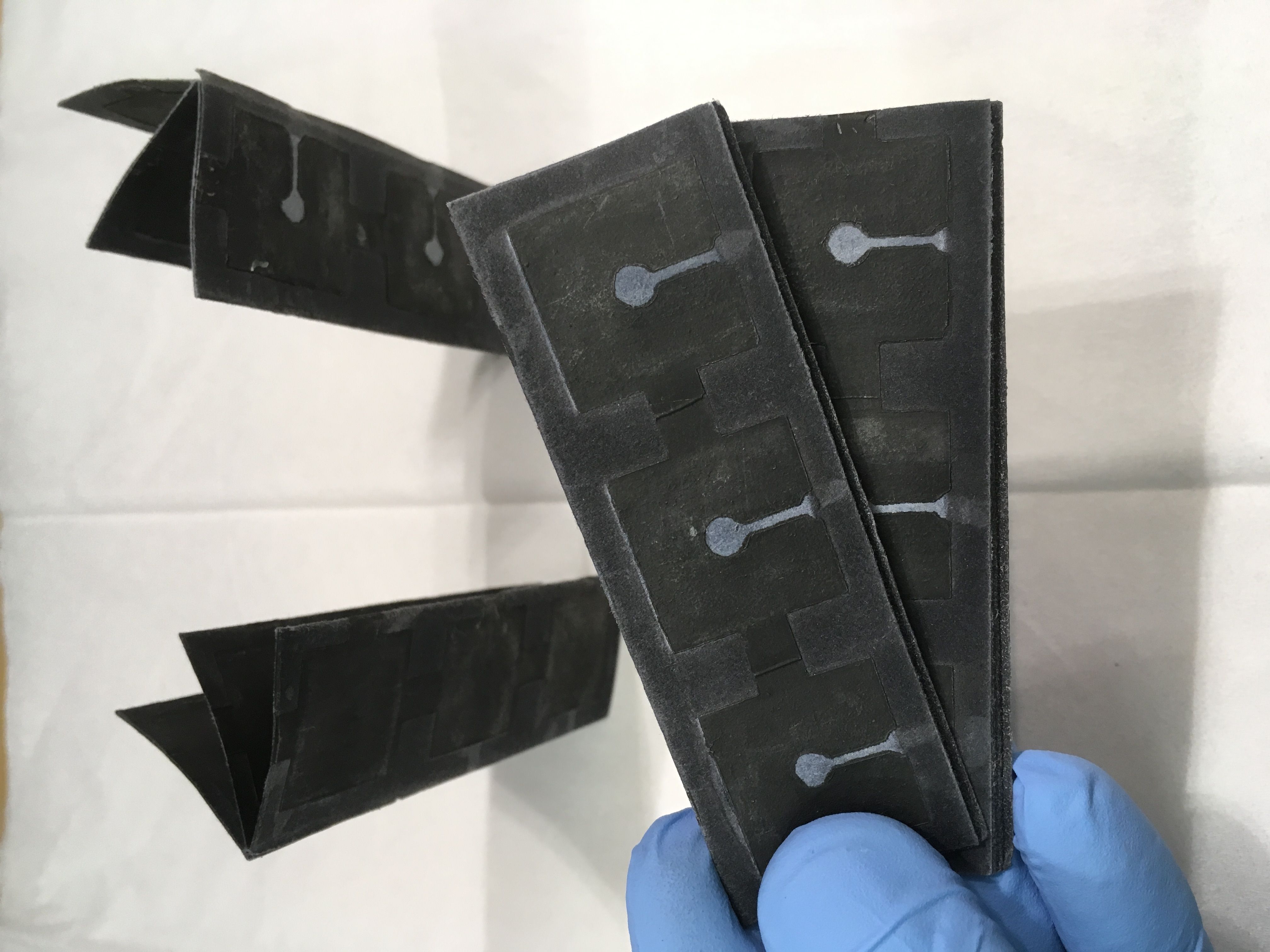In remote areas of the world or in regions with limited resources, everyday items like electrical outlets and batteries are luxuries. Health care workers in these areas often lack electricity to power diagnostic devices, and commercial batteries may be unavailable or too expensive. New power sources are needed that are low-cost and portable. Today, researchers report a new type of battery –- made of paper and fueled by bacteria --- that could overcome these challenges.
The researchers will present their results today at the 256th National Meeting & Exposition of the American Chemical Society (ACS). ACS, the world’s largest scientific society, is holding the meeting here through Thursday. It features more than 10,000 presentations on a wide range of science topics.
“Paper has unique advantages as a material for biosensors,” says Seokheun (Sean) Choi, Ph.D., who is presenting the work at the meeting. “It is inexpensive, disposable, flexible and has a high surface area. However, sophisticated sensors require a power supply. Commercial batteries are too wasteful and expensive, and they can’t be integrated into paper substrates. The best solution is a paper-based bio-battery.”
Continue reading at American Chemical Society
Image via Seokheun Choi, State University of New York Binghamton


